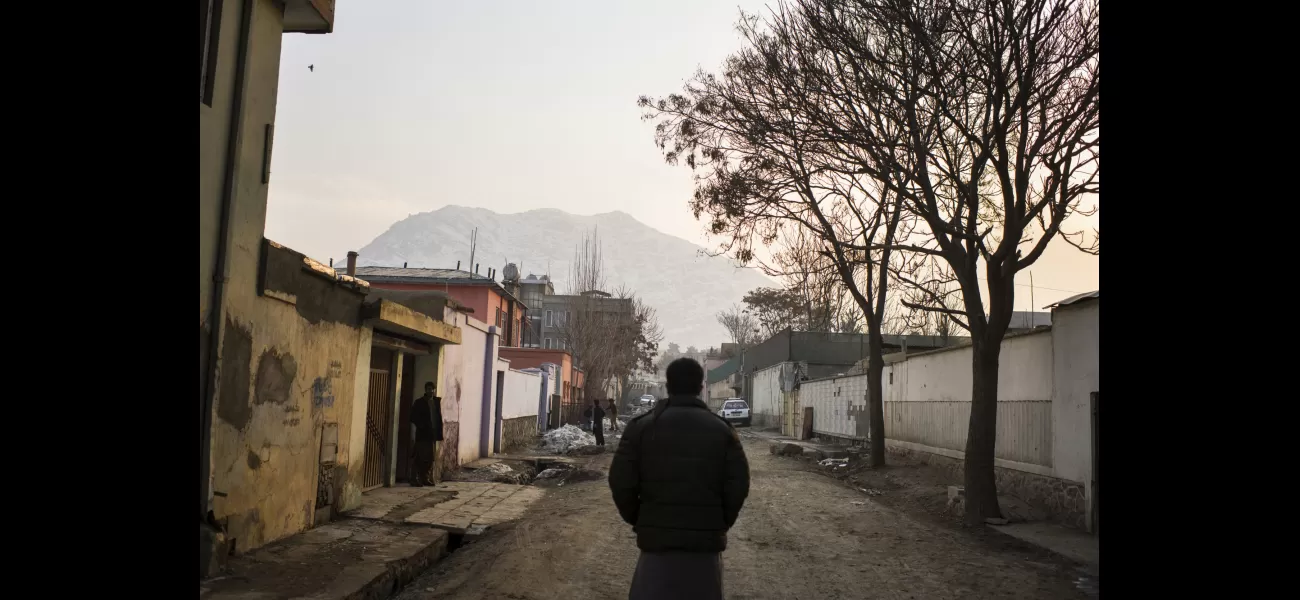Honouring the memory of Afghan soldiers who died serving the UK in combat.
Studying and honoring the Afghans who gave their lives in service to the West's mission.
October 7th 2023.

The UK government has released a list of 20 Afghans who died in action while serving with British forces in their homeland. A document recently released by the Ministry of Defence shows that in total, 26 unnamed interpreters and a general labourer lost their lives between 2001 and 2018.
These individuals are referred to as Locally Employed Civilians in the Freedom of Information Act response. Of the 26 Afghans, the majority were killed in action, three from enemy action while off-duty, and three from accidents on duty. Each person is given an ‘item’ number and a grade and job title in the list.
The snapshot gives an insight into the sacrifices of Afghans in support of the international intervention in Afghanistan. The Sulha Alliance CIO, which advocates for former interpreters and other LECs, has highlighted the cost paid by Afghans who answered the West’s call. This has included the ‘We Are Here, Because You Were There’ exhibition, which merges pictures of Afghan interpreters into anonymised images.
Former British Army Captain Ed Aitken worked with Afghan interpreters in the country before co-founding the Sulha Alliance. The list includes the grades of the interpreters, with 24 having the NIG3L1 code, meaning they operated ‘outside the wire’ and would have been at risk of Taliban ambushes and improvised explosive devices.
Most of the Afghans hired by British forces were based in Helmand province, where the UK mission operated between 2006 and 2014 as part of NATO’s International Security Assistance Force. The Western mission ended after almost two decades on August 31, 2021, when the last US plane left the runway at Kabul airport.
The spotlight then fell on Afghans linked to the allied presence who had been left behind as the Taliban consolidated their grip on power. During and after the Operation Pitting evacuation, former interpreters desperately seeking relocation said they and their families faced deadly recriminations from the former insurgents.
Nazir Ayeen, a former Afghan interpreter who now lives in London, said: ‘Afghans, like many British soldiers, fought against global terrorism to keep the streets of London safe. I thank the British government for paying compensation to the families of Afghans killed or injured while serving the Western mission. However, many interpreters that I know have developed mental health conditions as the result of witnessing casualties and loss of life. The MoD must recognise their service and pay them compensation too.’
The Sulha Alliance has played a prominent role in efforts to speed up the British government’s processing and resettlement of thousands of former Afghan LECs in the face of bureaucracy and housing shortages. The roll call is an insight into the service given by the Afghans that makes up one of the themes of the award-winning photography collection.
The story of Afghan interpreters is set amid a backdrop of ongoing conflict and repression in their homeland. The British intervention in the restive country claimed the lives of 457 UK armed forces personnel, according to official figures. The true picture of locally-hired Afghans who died serving the Western mission is unknown due to the MoD’s subsequent use of third parties who are not subject to Freedom of Information laws.
A government spokesperson said: ‘We owe a huge debt of gratitude to the interpreters who worked for, or with, UK forces in Afghanistan. That’s why we have committed to relocating all ARAP [Afghan Relocations and Assistance Policy]-eligible Afghans, including interpreters, and their families to the UK – a commitment we will honour. The UK has made an ambitious and generous commitment to help at-risk people in Afghanistan and, so far, we have brought around 24,600 people to safety, including thousands of people eligible for our Afghan resettlement schemes.’
The cost of the UK mission in Afghanistan is much greater than just the death toll of British soldiers. The sacrifices of the Afghans who answered the West’s call have been largely overlooked and forgotten. However, the Sulha Alliance is making efforts to honour and remember the interpreters who have been killed, injured, or left behind in Afghanistan.
The British government must recognise their service and ensure their safety, through compensation and relocation. Additionally, they must focus on those Afghans who are already in the UK, finding them employment, education, and helping them use their potential for specific objectives such as counter-terrorism.
These individuals are referred to as Locally Employed Civilians in the Freedom of Information Act response. Of the 26 Afghans, the majority were killed in action, three from enemy action while off-duty, and three from accidents on duty. Each person is given an ‘item’ number and a grade and job title in the list.
The snapshot gives an insight into the sacrifices of Afghans in support of the international intervention in Afghanistan. The Sulha Alliance CIO, which advocates for former interpreters and other LECs, has highlighted the cost paid by Afghans who answered the West’s call. This has included the ‘We Are Here, Because You Were There’ exhibition, which merges pictures of Afghan interpreters into anonymised images.
Former British Army Captain Ed Aitken worked with Afghan interpreters in the country before co-founding the Sulha Alliance. The list includes the grades of the interpreters, with 24 having the NIG3L1 code, meaning they operated ‘outside the wire’ and would have been at risk of Taliban ambushes and improvised explosive devices.
Most of the Afghans hired by British forces were based in Helmand province, where the UK mission operated between 2006 and 2014 as part of NATO’s International Security Assistance Force. The Western mission ended after almost two decades on August 31, 2021, when the last US plane left the runway at Kabul airport.
The spotlight then fell on Afghans linked to the allied presence who had been left behind as the Taliban consolidated their grip on power. During and after the Operation Pitting evacuation, former interpreters desperately seeking relocation said they and their families faced deadly recriminations from the former insurgents.
Nazir Ayeen, a former Afghan interpreter who now lives in London, said: ‘Afghans, like many British soldiers, fought against global terrorism to keep the streets of London safe. I thank the British government for paying compensation to the families of Afghans killed or injured while serving the Western mission. However, many interpreters that I know have developed mental health conditions as the result of witnessing casualties and loss of life. The MoD must recognise their service and pay them compensation too.’
The Sulha Alliance has played a prominent role in efforts to speed up the British government’s processing and resettlement of thousands of former Afghan LECs in the face of bureaucracy and housing shortages. The roll call is an insight into the service given by the Afghans that makes up one of the themes of the award-winning photography collection.
The story of Afghan interpreters is set amid a backdrop of ongoing conflict and repression in their homeland. The British intervention in the restive country claimed the lives of 457 UK armed forces personnel, according to official figures. The true picture of locally-hired Afghans who died serving the Western mission is unknown due to the MoD’s subsequent use of third parties who are not subject to Freedom of Information laws.
A government spokesperson said: ‘We owe a huge debt of gratitude to the interpreters who worked for, or with, UK forces in Afghanistan. That’s why we have committed to relocating all ARAP [Afghan Relocations and Assistance Policy]-eligible Afghans, including interpreters, and their families to the UK – a commitment we will honour. The UK has made an ambitious and generous commitment to help at-risk people in Afghanistan and, so far, we have brought around 24,600 people to safety, including thousands of people eligible for our Afghan resettlement schemes.’
The cost of the UK mission in Afghanistan is much greater than just the death toll of British soldiers. The sacrifices of the Afghans who answered the West’s call have been largely overlooked and forgotten. However, the Sulha Alliance is making efforts to honour and remember the interpreters who have been killed, injured, or left behind in Afghanistan.
The British government must recognise their service and ensure their safety, through compensation and relocation. Additionally, they must focus on those Afghans who are already in the UK, finding them employment, education, and helping them use their potential for specific objectives such as counter-terrorism.
[This article has been trending online recently and has been generated with AI. Your feed is customized.]
[Generative AI is experimental.]
0
0
Submit Comment





